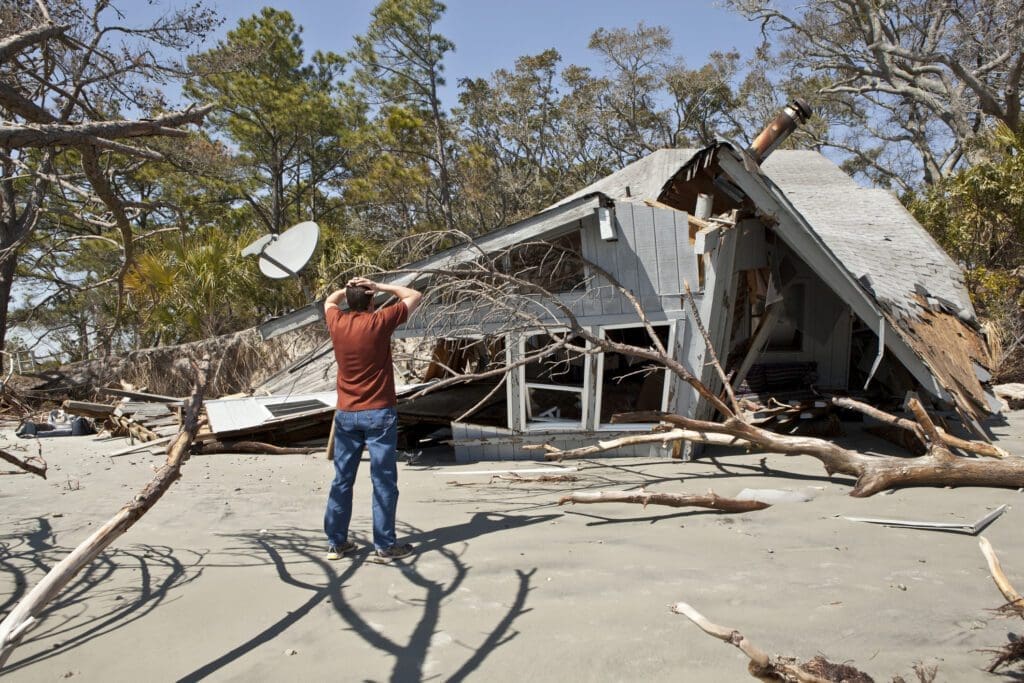 The past few weeks have seen multiple hurricanes ravage the southeast portion of the United States, with states like Florida, Georgia and the Carolinas worst hit. I wish I could say the severity and frequency of these storms are anomalies, but sadly they are becoming the norm.
The past few weeks have seen multiple hurricanes ravage the southeast portion of the United States, with states like Florida, Georgia and the Carolinas worst hit. I wish I could say the severity and frequency of these storms are anomalies, but sadly they are becoming the norm.
According to the National Oceanic and Atmospheric Administration (NOAA), even after being adjusted for inflation, we have seen a more than five-fold increase in the number of natural disasters here in the US exceeding 1 billion in damages since the 1980’s. I will let scientists and politicians argue about why we are seeing such an increase in severe weather, I will instead focus on what the impact is for the average person’s pocketbook.
With this increase in the financial costs of these storms has also come an increase in the cost of homeowners insurance to cover them. According to a study by S&P Global, since 2017 alone, home insurance premiums have risen as much as 60% in some states. Here in Missouri and Kansas, the average cost of home insurance is up over 25%.
Not only is the cost of insurance going up, the coverage it provides is also going down. Rising deductibles or exclusion of coverage for certain types of weather events are becoming the norm. In some areas deemed to be too high-risk, insurance companies are refusing to provide coverage at all. For example, recently over 30 Insurance companies including such names as Progressive and Farmers have severely reduced or eliminated coverage to the residents of Florida. After these last two hurricanes I have no doubt that trend will continue. Californians, have experienced a similar exodus of providers as these companies conclude the risk to homes from wildfires and earthquakes are too much to insure.
As you might expect, these challenges to finding affordable homeowners’ insurance is leading many, particularly seniors, to forego insurance altogether, A recent study from the Insurance Information Institute found that the number of homeowners who have no coverage on their homes has more than doubled from 5% in 2019 to 12% today.
As someone whose job it is to provide sound financial advice to people, let me be clear. It is never a good idea to drop homeowners’ insurance to save money. I know it may be tempting for some of you who have not filed a claim in decades, but the risk of losing your most valuable physical asset is simply too high. We have seen in living color the devastation that a single event can bring. There is no amount of cost-savings that can be worth the peace of mind knowing you are protected if tragedy strikes.
That doesn’t mean you are left with no other option but continue to pay more for your insurance. If you have significant savings built, I often advise people to raise their deductible. By self-insuring a larger portion of the costs to repair damage to your home, you can reduce your annual premiums significantly. It’s also easier now to shop various providers for lower rates than it ever has been. Independent insurance agents will even do it for you in many situations.
I know it’s never fun to spend your hard-earned money on a product you hope to never use. However, as the likelihood of being the victim of a natural disaster continues to increase, it is imperative you continue to protect yourself. After all, you don’t want a small amount of savings short-term to cost you big long-term.
(Past performance is no guarantee of future results. The advice is general in nature and not intended for specific situations)
